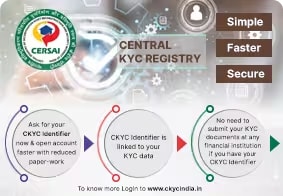Enjoy Zero Charges on All Commonly Used Savings Account Services
- About Us
- MD & CEO letter about the bank
- MD & CEO
- Our History
- Letter to Shareholders on the 1st Annual Report after Merger
- Letter to Shareholders on the 2nd Annual Report after Merger
- Letter to Shareholders on the 3rd Annual Report after Merger
- Letter to Shareholders on the 4th Annual Report after Merger
- Board of Directors
- Awards & Accolades
- News Room
- Investors
- Careers
- ESG
-
Customer care hotlineCall 1800 10 888
-
As per amendment in the Income Tax Rules, PAN or Aadhaar are to be mandatorily quoted for cash deposit or withdrawal aggregating to Rupees twenty lakhs or more in a FY. Please update your PAN or Aadhaar. Kindly reach out to the Bank’s contact center on 1800 10 888 or visit the nearest IDFC FIRST Bank branch for further queries.
-
-
FinFIRST Blogs
Being a homeowner is a wonderful feeling. However, servicing a long-term mortgage does limit your financial freedom. The home loan's interest rate and tenure play a critical role in determining how 'expensive' your house eventually turns out to be. If you are servicing a high-interest loan and repaying it over 20 years or more, there is a good chance that the interest component of the loan will double the repayment cost.
The good news is you needn’t be stuck forever with the original lender. Home loan refinancing allows you to transfer your existing mortgage to another lender offering better terms. Lower interest rates or a shorter tenure could significantly reduce the repayment burden and give you an opportunity to use the savings to make rewarding financial decisions through prudent saving and investing.
If you are exploring the option to re-evaluate the terms of your home loan, there are some factors you should consider to be sure that the change works in your favour. Read on to know what they are.
1. Assess your home equity
Home equity simply reflects the present market value of your asset. If your home is valued lower than what it was at the beginning of the mortgage, it means your home equity is negative. After the pandemic, real estate lost a lot of value, and many properties have not yet regained it. Alternatively, a property may lose value if supply is far greater than demand or the reputation of the developer/locality has been damaged.
Most lenders require a home equity of at least 10%-20% to consider a refinancing proposal. This means your investment of Rs 100 should be valued at a minimum of Rs 110-120 for the lender to offer an equivalent loan. Assess the property market in your locality and speak to the lender to understand how your asset is valued before you make a formal request for home loan refinancing.
READ MORE
2. Consider the interest rates
The prevailing interest rate is another critical factor when considering refinancing options. Experts suggest that if you can secure an interest rate at least 0.75% lower than your current loan, you should consider changing lenders. While the percentage difference may not seem much, shaving off even a fraction off the interest rate can result in substantial savings over the long term.
For example, a 20-year home loan for Rs 1 crore refinanced at 8% interest instead of 8.75% will help you save about Rs 12 lakh in additional interest payments! That money can be invested and better utilised for your child’s education or securing a comfortable retirement for yourself.
Another aspect to consider is the shift from fixed interest to floating rate and vice-versa. You can only make this decision once you have conducted adequate due diligence on how the general inflation and interest rates are expected to move in the future. If the interest rates are expected to go down, you could opt for a floating rate where your interest liability and EMIs could gradually come down. Alternatively, if you expect interest rates to rise consistently, you are better off locking into a fixed rate at the beginning of the term and insulating yourself from increasing interest costs.
3. Understand the refinancing costs
When you refinance a loan, the new lender pays off or forecloses the loan on your behalf. The primary lender may, however, levy a foreclosure charge/penalty ranging from 0.5% to 3% of the outstanding mortgage. Additionally, the new lender may levy onboarding charges such as a processing fee, appraisal fee, title and escrow fee, risk insurance coverage, etc. This means you will be incurring costs at both ends of the transfer. So, it is important to evaluate the cost-benefit of changing creditors. Refinancing may not be a smart choice if your overall savings on reduced EMIs are not greater than the transfer cost.
4. Ensure your credit score is high
Your ability to secure refinancing and negotiate interest rates relies heavily on your creditworthiness. While you may be able to secure refinancing on an average credit score between 650-749, you may not be eligible for lower interest rates that can help generate savings. A credit score of over 750 is ideal for securing a competitive interest rate, improving eligibility for higher funding, and getting speedier loan sanctions. To maintain a high credit score, ensure that all home loan EMIs are paid on time and that other debt repayments (including credit card dues) are cleared before the due date.
5. Keep your debt-to-income ratio low
The debt-to-income ratio is expressed as a percentage of your total monthly outflow towards all secured and unsecured loan repayments when compared to your take-home income. A debt-to-income ratio of 20%-35% is considered ideal. The ratio allows lenders to evaluate your credit risk and ability to service future loans without defaulting. In an ideal scenario, your total debt-to-income ratio should be below 40% of your monthly income. Exceeding this may make it difficult to get refinancing on your home loan. If you have a high debt-to-income ratio, prioritise clearing smaller high-interest loans such as credit card dues. If you expect lump-sum funds to come in (such as a salary bonus or an inheritance), you can use a part of the cash flow to fast-track debt repayment and bring your debt-to-income ratio down.
To sum it up - make a smart and well-considered decision
While low interest rates play an important factor in determining which service provider to choose, the service quality and customer service feedback are equally important, given that they will be with the lender for many years. IDFC FIRST Bank promises exceptional customer service along with competitive interest rates for your home loan refinancing needs. A swift digital application process, transparent charges, and friendly terms and conditions ensure that your shift to an IDFC FIRST Bank home loan is seamless and stress-free!
Disclaimer
The contents of this article/infographic/picture/video are meant solely for information purposes. The contents are generic in nature and for informational purposes only. It is not a substitute for specific advice in your own circumstances. The information is subject to updation, completion, revision, verification and amendment and the same may change materially. The information is not intended for distribution or use by any person in any jurisdiction where such distribution or use would be contrary to law or regulation or would subject IDFC FIRST Bank or its affiliates to any licensing or registration requirements. IDFC FIRST Bank shall not be responsible for any direct/indirect loss or liability incurred by the reader for taking any financial decisions based on the contents and information mentioned. Please consult your financial advisor before making any financial decision.
The features, benefits and offers mentioned in the article are applicable as on the day of publication of this blog and is subject to change without notice. The contents herein are also subject to other product specific terms and conditions and any third party terms and conditions, as applicable. Please refer our website www.idfcfirstbank.com for latest updates.


 What's special about us
What's special about us




















